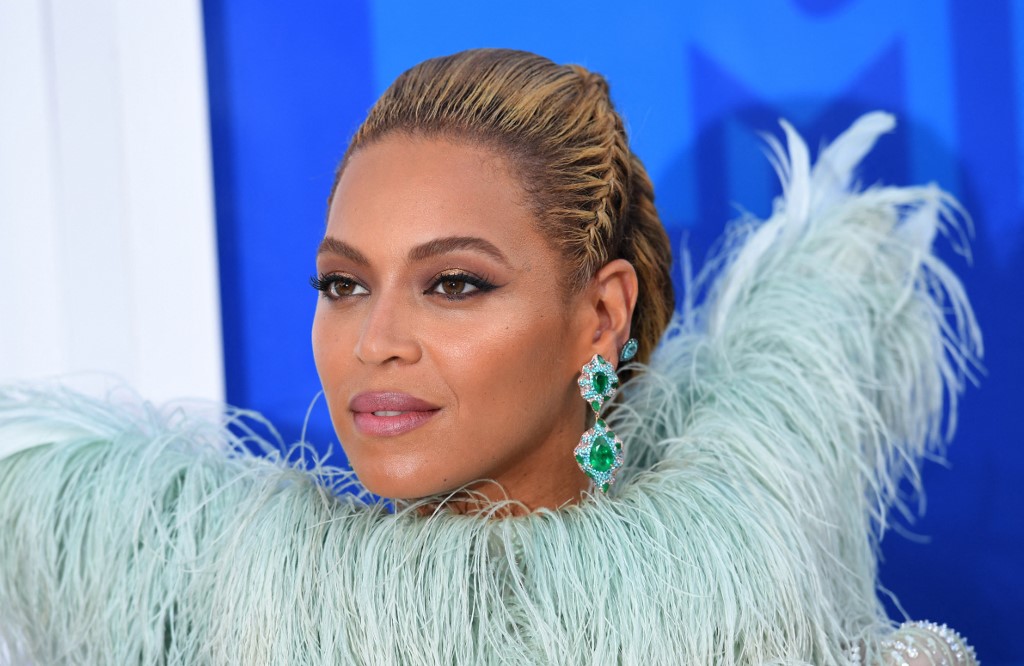Fans and critics alike are lavishing praise on “Cowboy Carter,” Beyonce’s rhinestone-studded, history-rich honky tonk of an album that’s rising in the charts after Friday’s hotly anticipated release.
A rowdy, wide-ranging homage to her southern heritage, the 27-track second act to her “Renaissance” trilogy is a genre-bending triumph that vaunts Black country culture.
“No one will mistake this sprawling set for ever following a straight path, or having a remotely dull moment,” wrote the critic at entertainment trade publication Variety.
“It’s almost as if Beyonce was watching some of the evolutionary leaps and hiccups country has been experiencing as it redefines its boundaries — as the music always has — and said, ‘Hold my Armand de Brignac. I’ve got this.'”
“But it’s not just a matter of what Beyonce can do for country music; it’s what her concept of country can do for her, in expanding her musical empire and even her already well-honed sense of self. It’s a lot.”
It’s too early to say where “Cowboy Carter” and its voluminous tracklist will land on the charts, but it’s certain the album has enormous commercial potential.
The Houston-born 42-year-old pioneered and mastered the surprise online album drop, but for the first two “Renaissance” acts, she turned to a more traditional marketing strategy, with calculated promos and deluxe physical editions for purchase.
Her ode to dance “Renaissance” soared to Billboard’s number one spot when it was released in 2022, and “Cowboy Carter” appears primed for a repeat.
Add in another blockbuster tour like she did for Act I — the “Beyonce bump” literally was blamed for raising Sweden’s inflation rate, and bolstered local economies wherever it rolled into town — and Queen Bey will do-si-do straight to the bank.
Hoedown throwdown
“Cowboy Carter” is a full-color display of just how rich music can grow outside dusty strictures of genre.
Beyonce deftly skewers the critics — Nashville’s country music gatekeepers have long tried to promote a rigid view of the genre that’s overwhelmingly white and male — both lyrically and sonically.
She ushers listeners through country’s evolution from African American spirituals and fiddle tunes to its pioneering women, like collaborator Linda Martell, and a vision of its future.
But while it delivers a history lesson, “Cowboy Carter” is at its core a party, leaning hard into the freedom to let loose.
Amid the hoopla, Beyonce offers touching portraits of motherhood, celebrations of sex and love, and even a murder revenge fantasy.
She also drafted a mix of youthful stars — Miley Cyrus, Post Malone and Tanner Adell included — and old guard icons for her revue, including none other than Willie Nelson and Dolly Parton.
The elders appear on the album in the form of radio hosts of a fictional broadcast, with Nelson telling listeners: “Now for this next tune, I want y’all to sit back, inhale and go to the good place your mind likes to wander off to.”
“And if you don’t wanna go, go find yourself a jukebox.”
The legendary outlaw artist — unrivaled, unrestricted and Texan — fits naturally with Beyonce’s own musical ambitions.
And Parton introduces the album’s take on “Jolene,” drawing parallels between her own original tale of a lover fearing betrayal with Beyonce’s personalized version that calls back to her 2016 track “Sorry” about her husband Jay-Z’s infidelity.
“Hey, Miss Honey B, it’s Dolly P,” croons Parton in her interlude. “You know, that hussy with the good hair you sang about reminded me of someone I knew back when. Except she has flaming locks of auburn hair. Bless her heart.”
“Just a hair of a different color, but it hurts just the same.”
Then there’s “Ya Ya,” a boisterous, psychedelic soul dance mash-up that manages to sample both Nancy Sinatra’s “These Boots Are Made For Walkin'” and The Beach Boys as it drops the mic.
“My family lived and died in America,” Beyonce belts. “Whole lotta red and then white and blue/ History can’t be erased.”
And “Sweet Honey Buckiin'” — which incorporates hip-hop and house with strums on loop — is among the songs that hat-tip to the first act of “Renaissance,” which celebrated electronica’s Black origins and evolution.
In a nutshell, the album is epic, fresh and, potentially, door-opening.
“With this endlessly entertaining project, she gets to be a warrior of female and Black pride and a sweetheart of the radio,” wrote Variety.
“Because being Beyonce means never having to pretend to be just one thing.”
